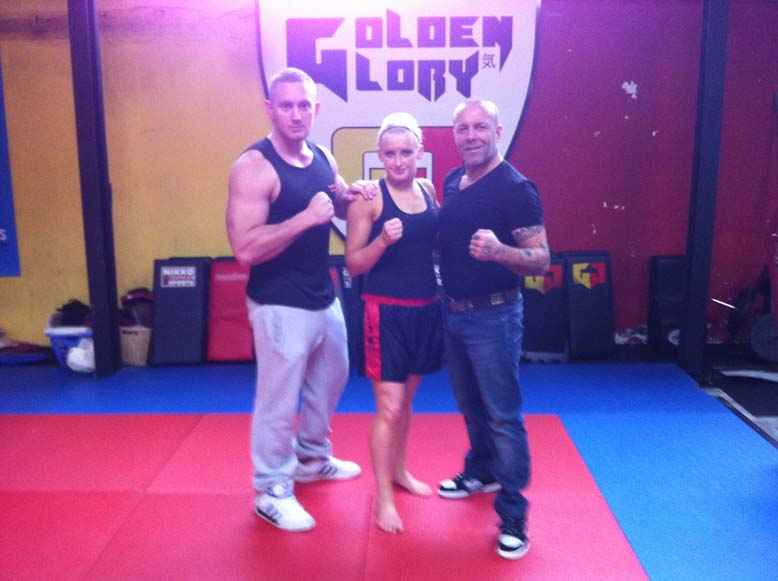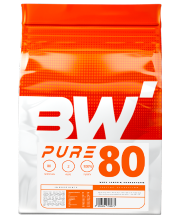Ramon Dekkers
So as you all know, I have recently given up bodybuilding (but not resistance training entirely) in the pursuit of a new challenge. My challenge is to maintain a respectable amount of muscle but also increase my general health, fitness, functional muscle and be able to apply my physique to different sports and activities along with maintaining a body that can keep up with the competitive demands of muscle modelling. Bodybuilding is a fantastic sport and requires an unquestionable level of dedication and commitment to gain large amounts of muscle whilst maintaining low body fat levels. However, I have been bodybuilding for the last 7 years and felt like making a change.
More recently I have reduced my resistance training down to 3 days per week. This has been split into Legs, an upper body pull day and an upper body push day. This comprises mainly of compound movements such as Squats and Deadlifts followed by a few isolation exercises to still stimulate each and every muscle individually to maintain my mesomorphic shape. I train for a period of 50 minutes followed by 10 minutes of skipping as fast and as hard as I can to fully deplete all glycogen stores ready for my post workout re-feed. I am a firm believer that intensity is more beneficial than the amount of time you spend in the gym. After all why would you put 60% into a 90 minute workout when you can put 100% into a 50 minute one?
Further to my resistance sessions, I also attend boxing training twice per week and maybe throw in an additional High Intensity Interval Training cardio session when I find the time. I have no intention to Box competitively (maybe at local level - white collar or unlicensed) but use these sessions mainly for fitness and cardiovascular training. I have already managed to reduce my weight from 17 stone 12lbs down to a slimmer and less muscular 15 stone 11lbs. My target weight will be closer to 14 stone so I still have a way to go but should hopefully be able to bring my new physique to the 2013 Body Power Exhibition early next year.
Someone very close to me also has a strong interest in exercise and nutrition. Her name is Kay and she is a Kickboxer for TKO Academy and School Of Excellence in Chatham, Kent. She is completely committed to her training and fights competitively at full contact level. She has recently had a birthday and wanted to meet her hero who is the legendary Ramon Dekkers. For those of you that don’t know, Ramon "The Diamond" Dekkers (born 4 September 1969) is a retired Dutch kickboxer and an eight time Muay Thai world champion. He has a small Gym / Fight School in a small town called Breda in the Netherlands called ‘Golden Glory’.

Ramon started martial arts at age 12, studying Judo for a few months. He then started boxing for a year. After that, Dekkers started practicing Muay Thai under Cor Hemmers. He was awarded his first title at age 18, when he won the Dutch National Championship on 15 November 1987. Dekkers got involved in the martial arts around 1986. He visited a gym in Breda where he first witnessed Thai boxing. He started training at the Breda gym. Dekkers' future stepdad was the gym's trainer who later became Dekkers' coach. Dekkers trained for about 3 months – his mother dropped him off every day, brought him to the gym, and picked him up after training. Cor saw that Dekkers had the potential to be a good fighter. Dekkers was 16 years old. Hemmers had been building a team and had no real fights by that time. Before Dekkers' first muay thai fight, Cor discussed it with Dekkers and his mother. During Dekkers' training, Cor became more and more involved with his mother, and the two eventually married. Dekkers then went on to becoming a professional Kickboxing and K1 fighter who fought all over the world. His fight history scores a very impressive 186 Wins (95 (T)KOs), 30 Losses, 2 Draws. Dekker’s finally retired in 2006 but he continues to teach Muay Thai to both professional and non-professional fighters from all over the world in his small gym in Breda, Holland.
His very impressive list of titles include:
- Dutch Featherweight Champion
- MTBN European Featherweight Champion
- NKBB European Super featherweight Champion
- IMTA World Lightweight Champion
- IMTF World Super lightweight Champion
- IMF World Light welterweight Champion
- WPKL World Welterweight Champion
- WPKL World Super welterweight Champion
- WPKF World Middleweight Champion
- WPKL World Middleweight Champion
The journey began at 5am on a Saturday morning. As we were only going for the weekend, we wanted to make sure we had as much time as possible to visit the very picturesque town including the famous Breda Cathedral. Leaving early meant that the roads were clear and as we both live within the South East of England, the journey only took 5 hours door to door. Once we arrived we felt it necessary to explore the sights that Breda had to offer. These included many shops and restaurants serving local cuisine. Everyone was very polite and almost everyone we encountered spoke English fluently which felt a little odd considering that we were half way across Europe. That evening we decided to have an early night as we wanted to be up bright and early so we would be energised for the session ahead with Mr Dekkers.
Upon waking, I made sure Kay consumed a high carbohydrate and high protein meal with plenty of water. This was in the form of 100g of Whole Grain oats, 2 scoops of BBWarehouse Performance Protein and 1 litre of water. Its imperative that your body is in an anabolic state prior to training and has sufficient fluids to hydrate the body and super saturate the digestive system to kickstart the metabolism. The 60g of complex Carbohydrates will also ensure that Kay had enough energy to carry her through her intense hour of training and pad work with the legend that is Mr Dekkers. She consumed the meal approximately 80 minutes before training then continued to sip water when necessary. Athletes need to be careful not to consume their meals too close to training because the digestive system requires oxygenated blood (within the muscles in the organs) in order to digest the food and allow for the process of osmosis (when nutrients transfer through the cells of the stomach wall and become water soluble so they can be transported around the body) to take place.
If you consume the food too close to training then the demand for oxygenated blood within the organs will still be too high which may result in the athlete feeling light headed or sick because the exercise will be increasing the demand for oxygenated blood in your muscles and your cardiovascular system will not be able to keep up. When you were a child, were you ever told not to swim straight after eating? Well now you know why!
Overall, the weekend was brilliant fun, the training was a huge success and thoroughly enjoyed by everyone. Both Kay and I will definitely be returning to attend one of Ramon’s week long training camps. He can provide accommodation and I would highly recommend it to anyone. He is extremely knowledgeable, speaks fantastic English and more importantly, he is hugely passionate about training and meeting him will inspire you to follow your dreams.
Never sacrifice who you are and who you want to be because of the fear of failure. Your Struggles develop your strengths and as a result, will provide the determination to embrace all that makes life worth living even in the face of overwhelming odds. When we have a clear sense of identity and purpose, we are more resilient, because we can hold fast to our vision of a better future.


